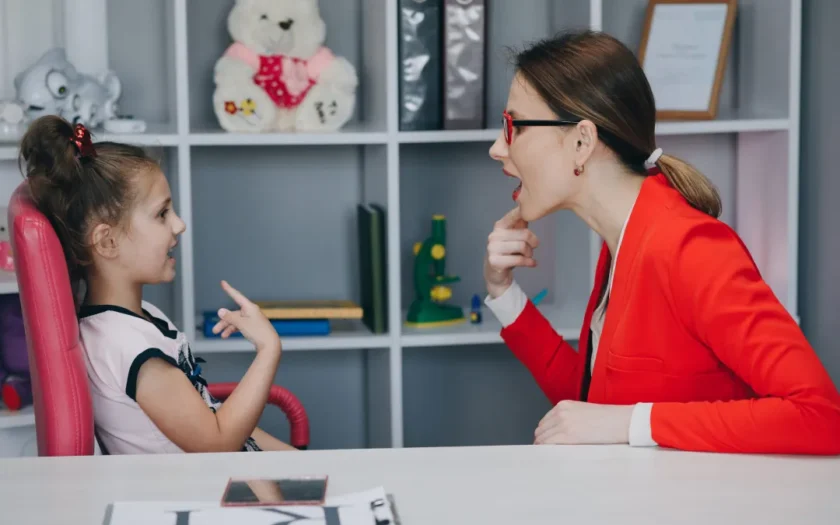Stuttering is a speech disorder characterized by disruptions in the flow of speech, such as repetitions of sounds, syllables, or words, and pauses that make communication difficult. It often begins in childhood and can affect confidence, social interactions, and academic performance. While the exact cause of stuttering is not fully understood, factors such as genetics, neurological differences, and environmental influences may contribute. Treatment typically involves speech therapy to help individuals improve fluency, learn coping strategies, and build confidence in communication.
What Is Stuttering?
Stuttering is a speech disorder that interrupts the flow of speech, often making kids repeat sounds, syllables, words, or phrases, prolong them, or pause during speech. It commonly affects children between the ages of 2 and 5 as they develop their language skills. In many cases, stuttering resolves on its own by age 5, but some kids may need speech therapy for long-term stuttering.
What Causes Stuttering?
The exact cause of stuttering is unknown, but it may be linked to how the brain coordinates with the muscles involved in speaking. Genetics also play a role, as kids with a family history of stuttering are more likely to experience it.
Signs of Stuttering
Stuttering often starts between 18 and 24 months when children begin forming sentences. Early signs include repeating sounds or syllables, prolonging them, or pausing while speaking. For most kids, stuttering comes and goes, and usually resolves before they reach school age. If stuttering persists past age 5, worsens, or is accompanied by facial or body movements, it’s best to seek help from a speech therapist.
When to Get Help
You should consult a speech therapist if your child:
- Tries to avoid speaking situations
- Replaces words to avoid stuttering
- Has facial or body movements during stuttering
- Frequently repeats whole words or sounds
- Shows signs of strained speech
Most schools provide testing and therapy if stuttering persists for 6 months or more.
How Can Parents Help?
Parents can help by creating a supportive environment:
- Let talking be fun without requiring perfect speech.
- Keep mealtime as a distraction-free conversation time.
- Avoid correcting or criticizing your child’s speech.
- Provide a calm home atmosphere and speak slowly and clearly.
- Allow your child to finish sentences without interrupting.
- Maintain eye contact and remain patient.
By fostering a positive communication environment, you can help your child feel more comfortable and reduce the pressure around speaking.



